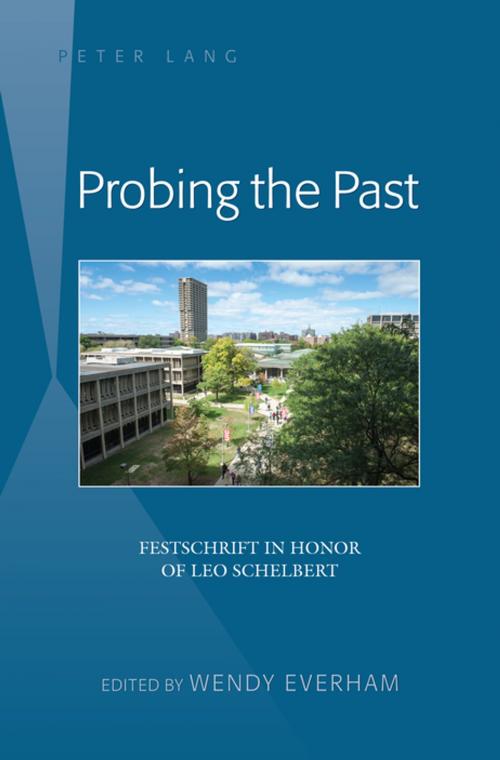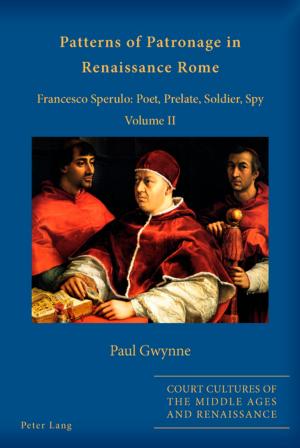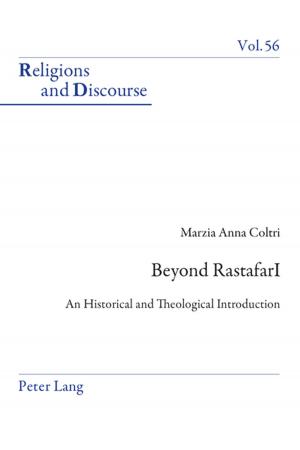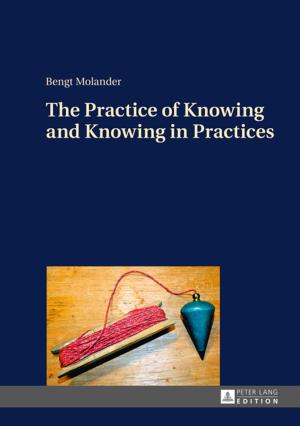Probing the Past
Festschrift in Honor of Leo Schelbert
Nonfiction, History, Eastern Europe, Italy, Social & Cultural Studies, Social Science, Anthropology| Author: | ISBN: | 9781454191858 | |
| Publisher: | Peter Lang | Publication: | June 30, 2015 |
| Imprint: | Peter Lang Inc., International Academic Publishers | Language: | English |
| Author: | |
| ISBN: | 9781454191858 |
| Publisher: | Peter Lang |
| Publication: | June 30, 2015 |
| Imprint: | Peter Lang Inc., International Academic Publishers |
| Language: | English |
This Festschrift acknowledges the scholarly work of Leo Schelbert and his mentorship of graduate students in the Department of History at the University of Illinois at Chicago where for 33 years he taught American history. Professor Schelbert has specialized in the story of European migrations and especially of immigration to the United States. His courses offered not only pertinent data, but they also raised theoretical issues to which historical work is tied inescapably.
The varied essays included in this book reflect the range of themes former students, who now are scholars in their own right, have been pursuing. The topics of three essays center on North American Indians facing white intruders, another on émigré Hungarians living in Scotland, and one (contributed to this volume by a most esteemed colleague with whom Leo Schelbert shared many a student) on striking women straw workers in Tuscany. Another essay concerns matters relating to those grappling with mental health issues, while others deal with African newcomers in Chicago, Jewish immigrants to America who first worked as peddlers, contemporary Polish American politics in Chicago, and also with a nineteenth-century Swiss American theologian. Two of the last three essays honor Leo Schelbert’s work as a colleague and historian apart from the university setting, whereas the final one honors Leo Schelbert as a teacher as well as the Department of History at UIC in which its Swiss-born member worked from 1971 to 2003.
This Festschrift acknowledges the scholarly work of Leo Schelbert and his mentorship of graduate students in the Department of History at the University of Illinois at Chicago where for 33 years he taught American history. Professor Schelbert has specialized in the story of European migrations and especially of immigration to the United States. His courses offered not only pertinent data, but they also raised theoretical issues to which historical work is tied inescapably.
The varied essays included in this book reflect the range of themes former students, who now are scholars in their own right, have been pursuing. The topics of three essays center on North American Indians facing white intruders, another on émigré Hungarians living in Scotland, and one (contributed to this volume by a most esteemed colleague with whom Leo Schelbert shared many a student) on striking women straw workers in Tuscany. Another essay concerns matters relating to those grappling with mental health issues, while others deal with African newcomers in Chicago, Jewish immigrants to America who first worked as peddlers, contemporary Polish American politics in Chicago, and also with a nineteenth-century Swiss American theologian. Two of the last three essays honor Leo Schelbert’s work as a colleague and historian apart from the university setting, whereas the final one honors Leo Schelbert as a teacher as well as the Department of History at UIC in which its Swiss-born member worked from 1971 to 2003.















